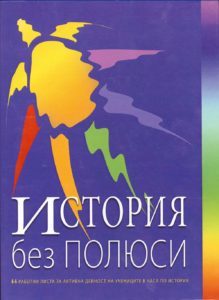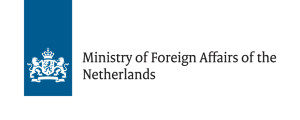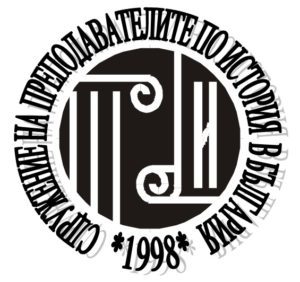44 Innovative Lesson Plans for Bulgarian History Education
The EuroClio project in Bulgaria has its focus on school history and would like to develop an increased intercultural and also international dimension in the learning and teaching of history in this country. The target group is a wide network of historians and history educators which include history teachers, history teacher trainers, textbook authors, curriculum developers, inspectors, advisors and local authorities on the learning and teaching of history. The overall aim is to strengthen the international context of an inclusive Bulgarian history education in order to support the integration of Bulgaria into the European Union. The project culminated in the publication of a course book with innovative material to strengthen the international context of an inclusive Bulgarian history education in order to support the integration of Bulgaria into the European Union.
Download individual chapters
Section 1. State Policies
| 1. The Bulgarian Jews (1940-1944) | BG |
| 2. For the Bulgarian Jews’ cause | BG |
| 3. The salvation of the Bulgarian Jews | BG |
| 4. For the rights of all citizens (1878-1912) | BG |
| 5. Between civil rights and personal feelings (1878-1912) | BG |
| 6. What Europeans believe in | BG |
| 7. All People were born free and equal in dignity and rights | BG | EN |
| 8. Foreign colleges in Bulgaria between the two World Wars | BG |
| 9. The founders at Tarnovo | BG |
| 10. A trial for the country’s political system’s tolerance (1931-1953) | BG |
| 11. The Roma Community in Bulgaria | BG |
Section 2. Migrations
| 12. The Bulgarians from the region of Banat and the Dual Austro-Hungarian Monarchy | BG |
| 13. Formation of the Bulgarian diaspora in Besarabia | BG |
| 14. Beyond the Danube and beyond all troubles | BG |
| 15. People from the Balkans in the New World | BG | EN |
| 16. Russian immigrants in Bulgaria (1918-1941) | BG |
| 17. Bulgarians’ migration through the eyes of French travelers of the 19th century | BG |
| 18. Migrations to the USA at the end of the 19th century | BG |
| 19. Migrations to Free Bulgaria (1878-1919) | BG |
| 20. Migrations to Free Bulgaria (1878-1940) | BG |
Section 3. The City
| 21. One Street – Two Churches | BG |
| 22. The diversity within the space of a city | BG | EN |
| 23. The Flovdiv of Renaissance Times | BG |
| 24. Lovech on the boundary between two epochs | BG |
| 25. Plovdiv – traces of an inherited past | BG |
| 26. The town of Pleven during the Bulgarian Revival | BG |
| 27. Sofia through the centuries | BG |
| 28. Growing bigger but never growing older? | BG |
| 29. Varna – a place of peaceful contact | BG |
| 30. Vidim through the eyes of a European traveler (the 19th century) | BG |
| 31. Ruschuk at the end of the 19th century | BG |
Section 4. Everyday Life
| 32. Bulgarian agriculture and stock-breeding during the 15th-19th century | BG |
| 33. “The Bulgarian’s manners” | BG |
| 34. “These women are tender” | BG |
| 35. Bulgarian’s homes, crafts and trade during the 16th to 19th centuries | BG |
| 36. Stop the Dragon, Lord | BG | EN |
Section 5. Everyday Life
| 37. When a human helps a human | BG |
| 38. Why time change people`s attitude to architectural monuments | BG |
| 39. Bulgaria`s Jerusalems | BG |
| 40. Bulgarians Alert | BG |
| 41. The Boer Wars and the feelings of a Bulgarian Classic | BG |
| 42. Elias Canetti – A memory of a “forgotten” language | BG |
| 43. Kemal Ataturk and Bulgaria | BG |
| 44. Christians and Muslims within the same Empire | BG | EN |
Contributors
Rumyana Kusheva (President of BGHTA), Milena Platnikova (Project Manager of the Bulgarian History Teachers’ Assocation), Dr. Penka Kostadinova (Vice‐president of BGHTA), Dr. Penka Stoyanova (History teacher), Senior Assistant Violeta Stoicheva (teacher‐trainer), Assoc. Prof. Kostadin Paev (Associate professor in methodology of training history), Roumen Andreev (teacher), Sue Benet (teacher trainer), Dr. Yossane Vela (lecturer and teacher trainer), Tamara Eidelmann (Russian history teacher), Ineke Veldhuis‐Meester (teacher trainer in History), Assoc. Prof. Veselin Yanchev (Professor in History), Tamara Eidelman (Russian history teacher), Milena Platnikova (BGHTA), Bistra Stoimenova (teacher trainer), Nikola Tsvetkova (teacher trainer), Emilia Dimitrova (history teacher), Dafina Nikolova (history teacher), Dimcho Doikov (history/ICT teacher), Emilia Dimitrova (history teacher), Emila Katova (history teacher), Lyubomira Pankovska (history teacher), Milka Dimitrova (regional coordinator of BGHTA), Maria Benova (history teacher), Nikolai Chakurov (history teacher), Nikolinka Popyordanova (history teacher), Petya Georgieva (history teacher), Radostina Novakova (head of regional inspectorate of education), Todor Zarkov (history teacher), Toshko Hristov (history teacher), Valentina Yordanova (historian).
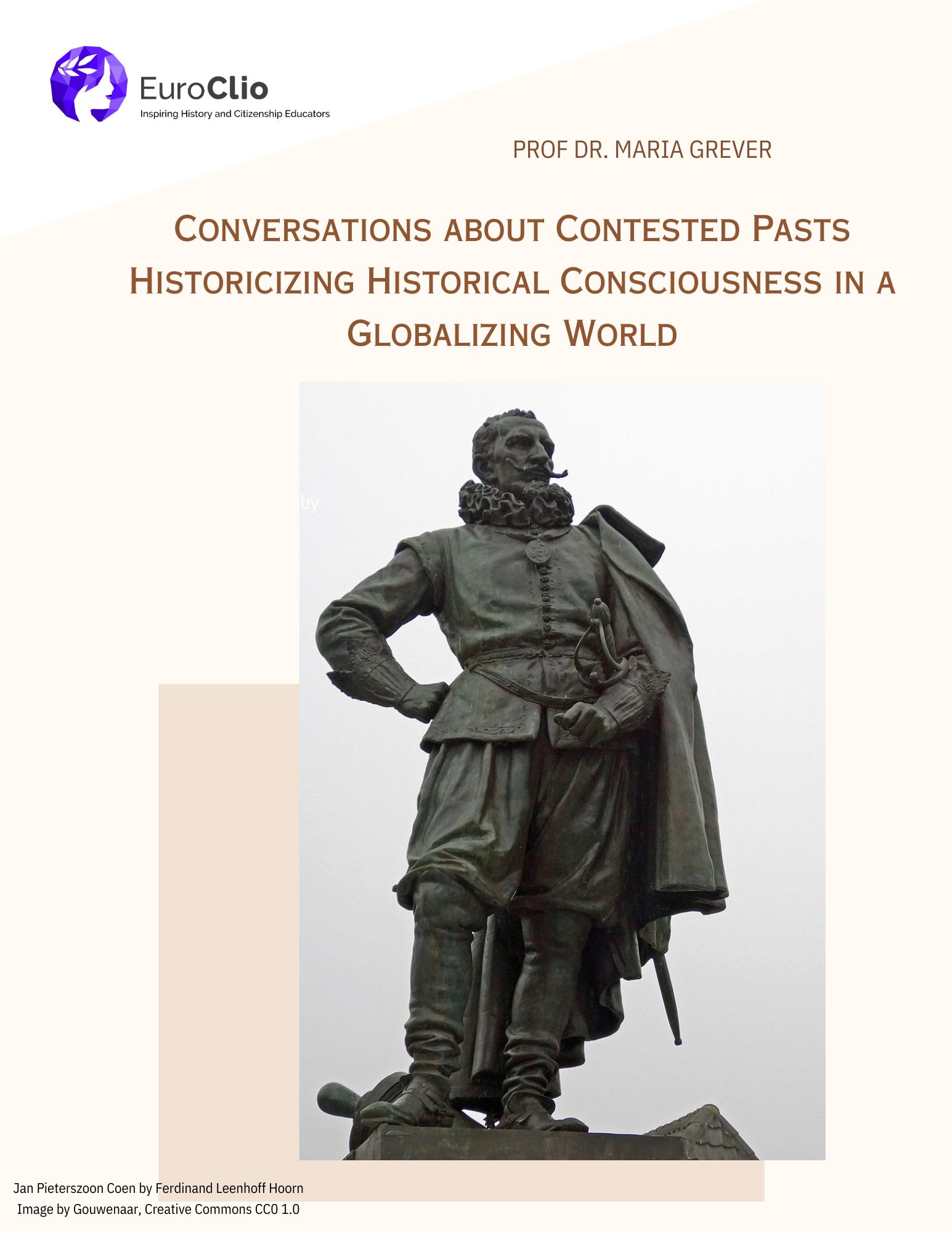
Conversations about Contested Pasts: Historicizing Historical Consciousness in a Globalizing World by prof. dr. Maria Grever
In several post-colonial countries, the war on monuments and cultural […]
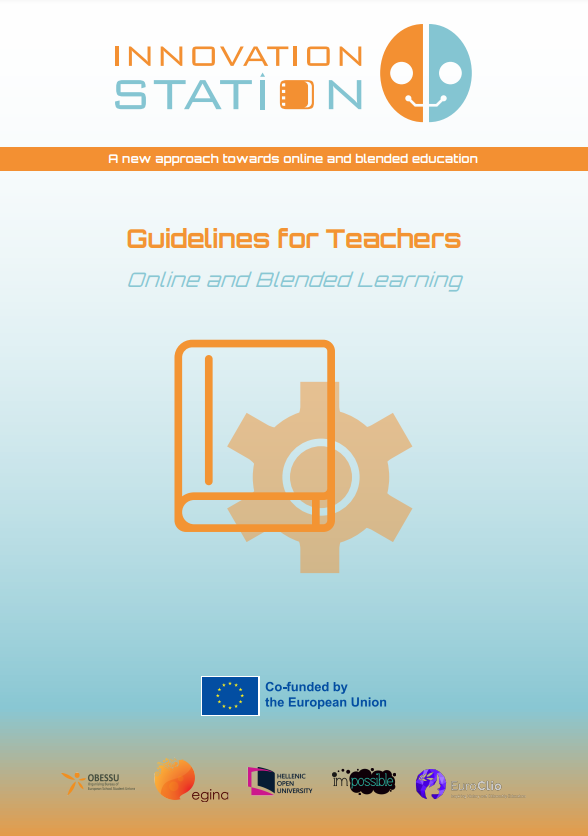
Innovation Station Guidelines for Teachers
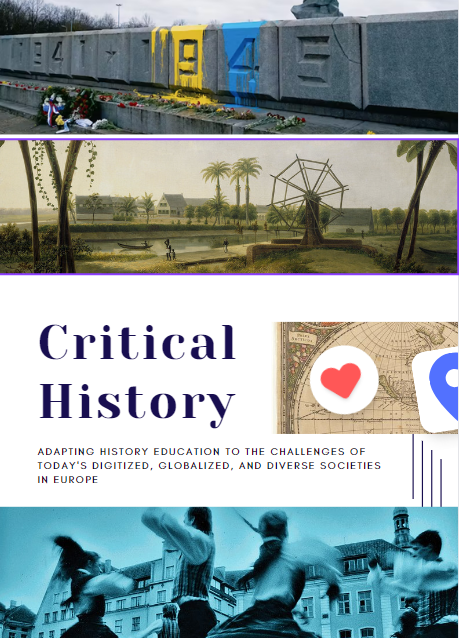
Study Guide Critical History
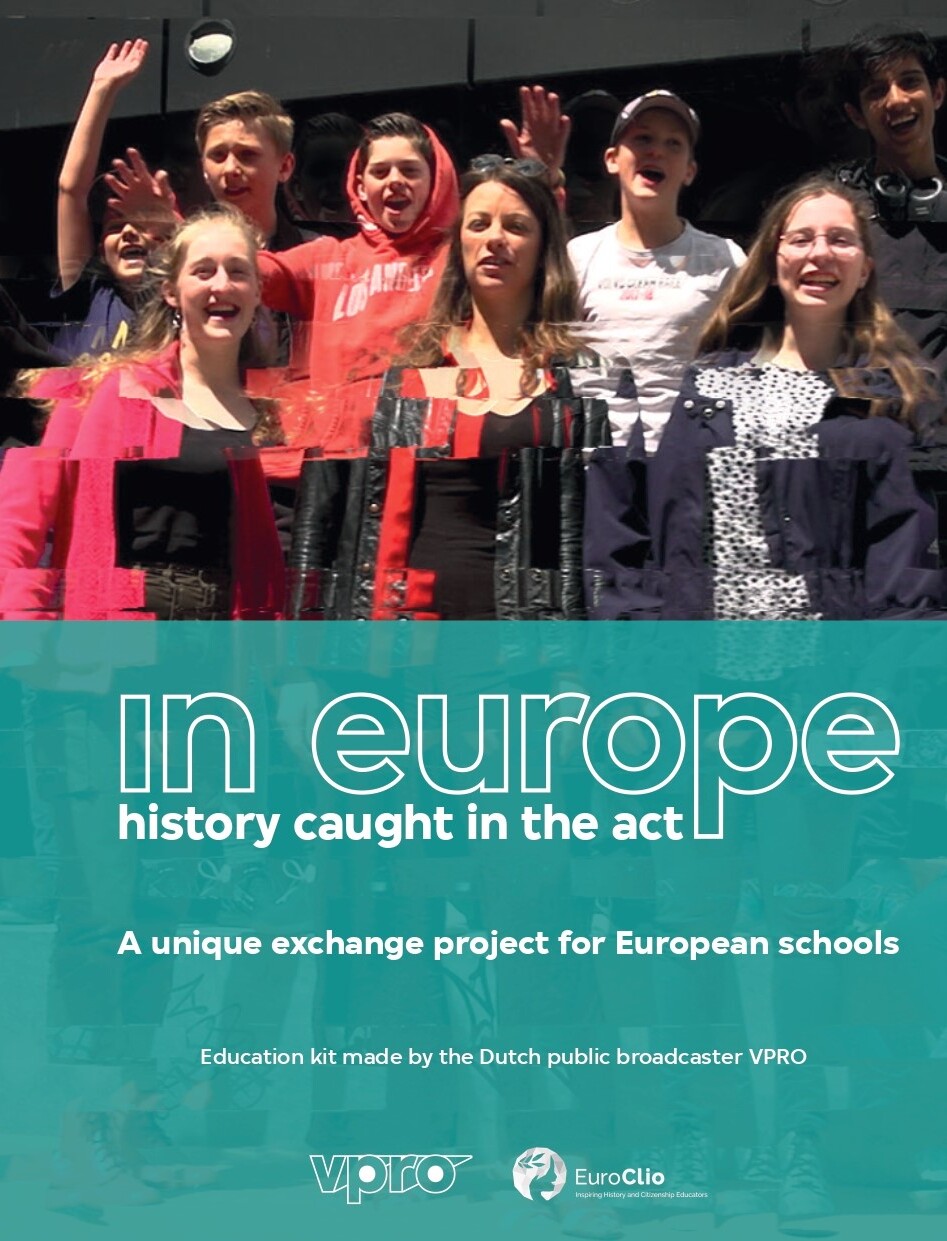
Education Kit on “Fake News and Disinformation” – VPRO In Europe Schools
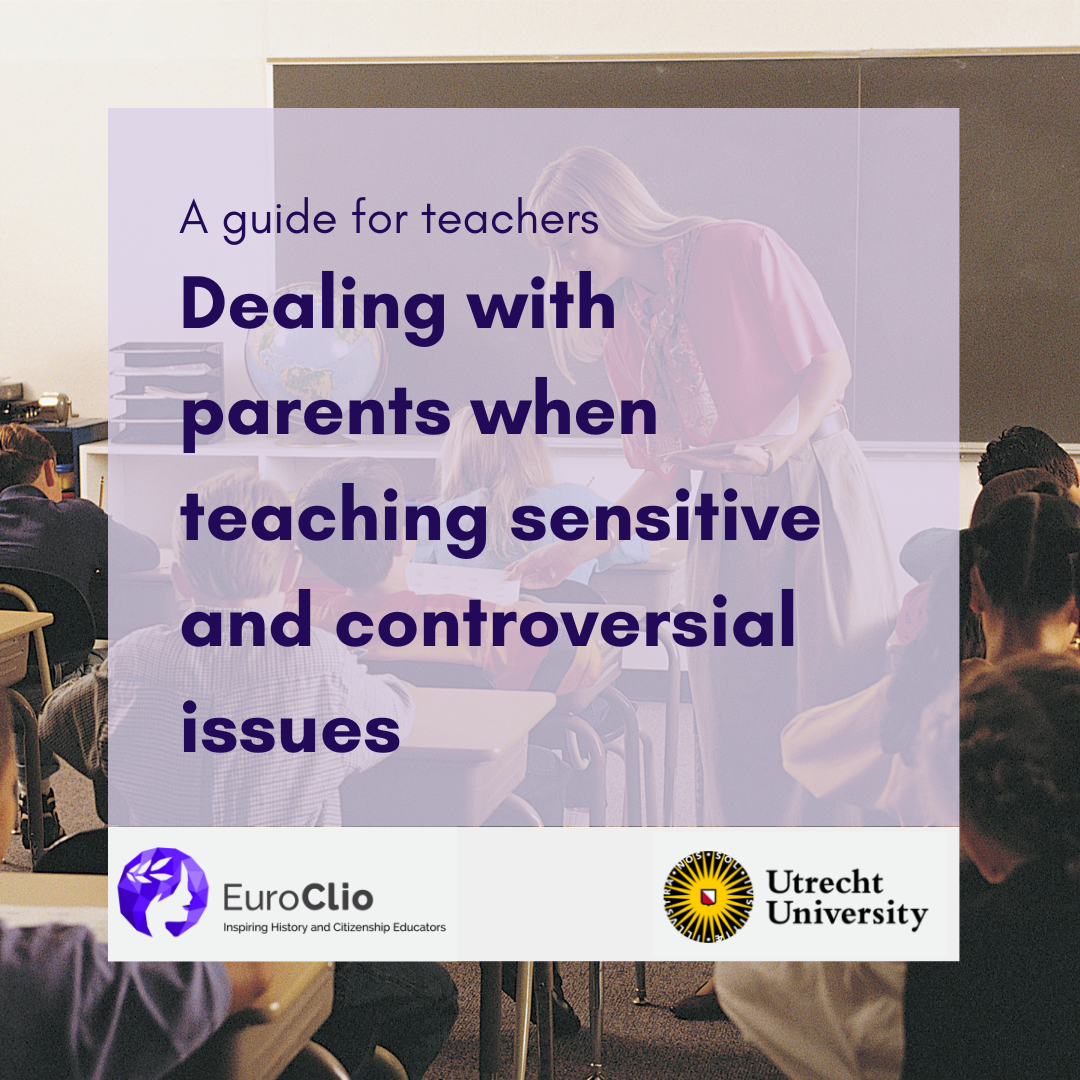
Dealing with parents when teaching sensitive and controversial issues

